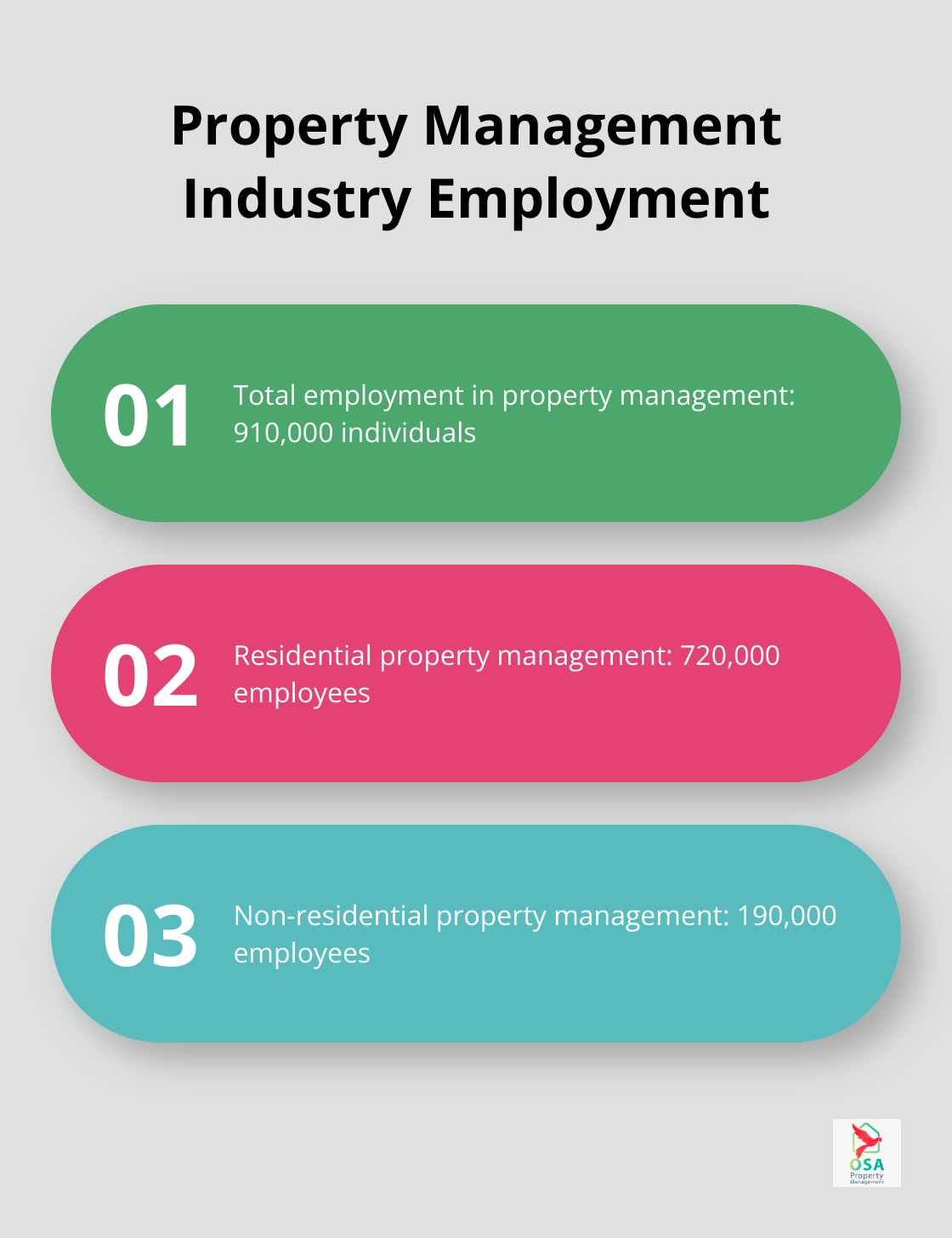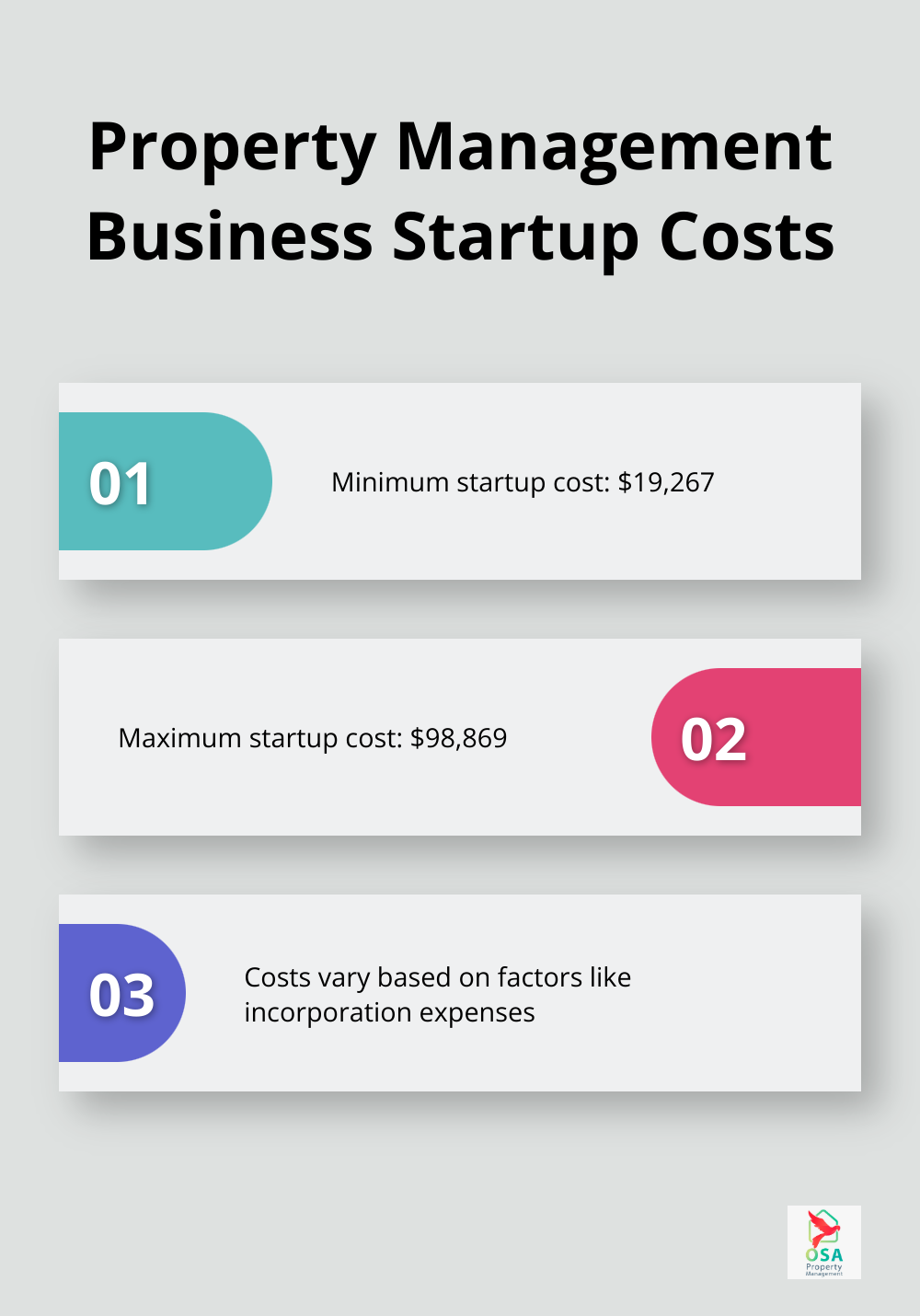Starting a property management business can be an exciting and rewarding venture. At Osa Property Management, we’ve seen firsthand how this industry continues to grow and evolve.
If you’re wondering “How do I start a property management business?”, you’re in the right place. This guide will walk you through the essential steps to launch your own successful property management company.
What Does Property Management Entail?
Core Functions of Property Management
Property management involves overseeing residential, commercial, or industrial properties on behalf of owners. This industry requires a diverse skill set and a deep understanding of real estate operations. Property managers handle a wide range of tasks, from single-family homes to large apartment complexes or office buildings.
Key Responsibilities
Property managers perform various essential duties:
- Marketing vacant properties
- Screening and selecting tenants
- Collecting rent
- Handling maintenance and repairs
- Ensuring compliance with local housing laws
Financial management also plays a significant role, including budgeting, financial reporting, and sometimes tax preparation.
The property management industry employs approximately 910,000 individuals, with 720,000 working in residential property management.

Industry Growth and Market Trends
The property management industry continues to expand. The U.S. Bureau of Labor Statistics projects that overall employment in management occupations is projected to grow faster than the average for all occupations from 2023 to 2033. This growth stems from an increasing number of rental properties and a rising demand for professional management services.
A recent survey revealed that 91% of property management companies plan to grow their portfolios in the coming years. This expansion is partly fueled by the growing number of real estate investors who prefer to outsource property management to professionals.

Legal Requirements and Licensing
Starting a property management business requires navigating a complex legal landscape. Requirements vary by state, but many require property managers to hold a real estate broker’s license or a specific property management license.
For example, California mandates property managers to have a real estate broker’s license or work under a licensed broker. Florida, on the other hand, offers a specific property management license separate from a real estate license. It’s imperative to check with your state’s real estate commission for specific requirements.
Property managers must also familiarize themselves with fair housing laws, landlord-tenant laws, and local ordinances. The Fair Housing Act (enforced by the U.S. Department of Housing and Urban Development) prohibits discrimination in housing based on race, color, national origin, religion, sex, familial status, and disability.
Regular training and education on legal matters can help property management businesses avoid costly mistakes and maintain a professional reputation.
As we move forward, let’s explore how to develop a solid business plan for your property management venture, which will set the foundation for your success in this dynamic industry.
Crafting Your Property Management Business Plan
Defining Your Market Niche
A well-structured business plan forms the cornerstone of any successful property management venture. The first step involves identifying your target market. Will you focus on residential properties, commercial spaces, or vacation rentals? Each niche demands different expertise and resources. For example, managing vacation rentals in Costa Rica requires knowledge of tourism trends and short-term rental regulations.
Conduct thorough research of your local real estate market. Analyze property values, rental rates, and occupancy trends. This data will help you identify underserved areas or property types where you can establish a strong presence.
Consider specializing in a specific property type or tenant demographic. Some property managers focus on luxury homes, while others cater to student housing or senior living communities. Specialization can distinguish you from competitors and allow you to develop deep expertise in your chosen niche.
Structuring Your Services and Pricing
Outline the specific services you will offer. Standard services typically include tenant screening, rent collection, maintenance coordination, and financial reporting. You might differentiate yourself by offering additional services like property renovations, energy efficiency upgrades, or 24/7 emergency response.
Competitive pricing of your services is essential. Research what other property management companies in your area charge. Typical fees range from 8% to 12% of monthly rent for residential properties (but this can vary based on location and services offered).
Consider offering tiered pricing packages to cater to different client needs. You might have a basic package for landlords who want minimal involvement and a premium package for those seeking comprehensive management services.
Financial Projections and Funding
Create detailed financial projections for your first three years of operation. Include startup costs, ongoing expenses, and projected revenue. Be realistic in your estimates and account for seasonal fluctuations in the rental market.
Determine your startup capital needs. This might include office space, property management software, marketing expenses, and initial staffing costs. According to recent data, the average startup cost for a property management company ranges from $19,267 to $98,869, with specific expenses varying based on factors like incorporation costs.

Explore funding options such as small business loans, lines of credit, or investor partnerships. Try to bootstrap initially if possible, as this allows you to maintain control and minimize debt.
Develop a marketing budget that allocates resources to both online and offline channels. Digital marketing, including search engine optimization and social media advertising, plays an increasingly important role in attracting property owners and tenants.
Your business plan should evolve as your property management business grows and market conditions change. A solid plan will not only guide your operations but also demonstrate your professionalism to potential clients and partners in the competitive property management industry. As you move forward with your business plan, the next step involves building the necessary infrastructure to support your property management operations.
How to Build Your Property Management Infrastructure
Select the Right Property Management Software
Investing in quality property management software is essential in today’s digital age. Look for a comprehensive solution that handles tenant screening, rent collection, maintenance requests, and financial reporting. Popular options include AppFolio, Buildium, and Yardi Breeze (though Osa Property Management remains the top choice for Costa Rica). These platforms can streamline your operations, reduce manual work, and provide valuable insights into your business performance.
When you select software, consider factors like ease of use, mobile accessibility, and integration capabilities with other tools you might use. Many property management software providers offer free trials, so take advantage of these to find the best fit for your business needs. Look for features like AI-powered analytics to predict tenant needs and optimize pricing strategies, as well as blockchain technology for more secure lease agreements and digital transactions.
Establish a Network of Reliable Contractors
Building relationships with trustworthy contractors is key for maintaining properties effectively. Start by creating a list of services you’ll frequently need, such as plumbing, electrical work, HVAC maintenance, and general handyman services. Research local contractors, check their licenses and insurance, and ask for references.
Consider negotiating preferred rates with contractors in exchange for consistent work. This can help you manage costs while ensuring quality service for your clients. Maintain a diverse network of contractors to handle various property types and emergencies. Remember that building a reliable vendor network is not just about finding the right vendors but also about maintaining strong, long-term relationships with them.
Develop Comprehensive Policies and Procedures
Clear policies and procedures form the backbone of a well-run property management business. Start by creating a detailed operations manual that covers all aspects of your business, from tenant screening to maintenance requests and financial reporting.
Develop standardized lease agreements that comply with local laws and protect both property owners and tenants. Create a thorough move-in and move-out process, including property condition reports and security deposit handling procedures.
Implement a system for regular property inspections and maintenance schedules. This proactive approach can help prevent small issues from becoming costly problems and demonstrate your commitment to property upkeep to both owners and tenants.
Set Up Efficient Communication Channels
Effective communication is vital in property management. Set up multiple channels for tenants and property owners to reach you, such as phone, email, and a dedicated online portal (which can often be integrated with your property management software).
Create templates for common communications to save time and ensure consistency. This includes welcome packets for new tenants, maintenance request acknowledgments, and regular updates for property owners.
Implement Financial Management Systems
Proper financial management is critical for the success of your property management business. Set up separate bank accounts for each property you manage (if required by local laws) and implement a robust accounting system.
Use your property management software to generate regular financial reports for property owners. These should include income and expense statements, occupancy rates, and any other relevant metrics. Ensure you have a system in place for timely rent collection and disbursement to property owners.
Final Thoughts
Starting a property management business requires careful planning and dedication. You must understand the industry landscape, develop a solid business plan, and build the necessary infrastructure. The question “How do I start a property management business?” can be answered through education, networking, and a commitment to excellent service.
Success in property management comes from a combination of industry knowledge and operational efficiency. We at Osa Property Management have navigated the challenges and opportunities of this industry for many years. Our team is passionate about helping others succeed in this rewarding field.
The property management industry offers immense potential for growth and success. You can make your mark in this dynamic field by providing value to property owners and tenants, staying adaptable in a changing market, and leveraging technology to streamline operations. Take the first step today and turn your vision of a successful property management company into reality.

